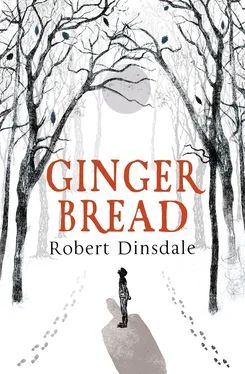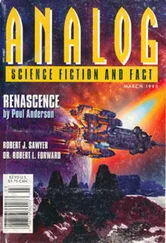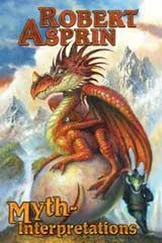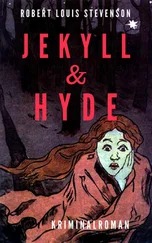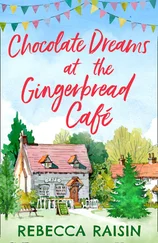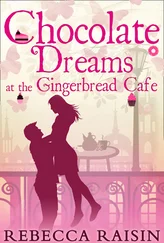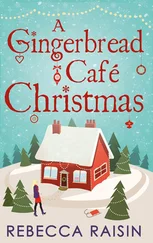‘Wake up.’
He turns, entangled in eiderdown, not knowing where, nor even what, he is.
‘He’s coming for you. You have to wake up.’
All he can feel is a circlet of pain running around the edge of his head. He is wearing an icicle crown and, rather than growing out, the icicles have turned on him, growing into flesh and bone. He shivers. It is not a shiver of cold, but a shiver of fever. It is the kind of shiver mama got every time they said they were making her better, and put the wires into her veins.
Mama’s voice. He remembers it now. She says, ‘Wake up, my littlest friend. He’s coming to find you.’
‘Who is, mama?’
‘He’s coming out of the wood …’
The boy’s eyes snap open. No sooner is he awake than mama’s voice is gone. He fights the eiderdown off to find himself trapped, somehow, on the inside of an ice cube. It takes a moment, but then: the car. I am in the car.
Outside, the snow dark is paling, but he cannot see the trees. All is occluded by ice.
Something moves.
As soon as he senses movement, other shapes fall into stark relief. Edges become distinct and distances become apparent – and, although the ice still magnifies and shrinks according to how deeply its scales have grown, he can make out individual trees.
He can make out, too, a figure coming lurching over a fallen bough.
In three great strides it is at the side of the car. Its hands seem to caress the windows and doors, but then it retreats. He thinks, for a moment, it is gone back to the forest, but then it appears on the ditch side of the car, brandishing a bough it has lifted from the winter wood.
The boy scrabbles against the furthest corner of car. His fingers find the handle, but it is held fast. He remembers the crunch of ice on ice, the sensation of the tiny crystals locking together, just as surely as this bearskin hat has become a part of his head. He tries again, unfeeling fingers fumbling – but still nothing.
‘Are you in there?’
It can talk. The shadow man can talk. Its voice is distant, a ragged whisper as a thing might make if it did not need to take any breath.
The boy holds himself tight. It is only movement that he sees. Perhaps it is the same for this forest ghoul. If the boy does not move, he will remain invisible in his icy tomb.
‘I can see you.’
He has to be lying. His body is held rigid, refusing to take breath. The ice from the bearskin hat is creeping down his face.
‘I can see you, boy …’
At last, he exhales. Two great gulps, and a horrible pain explodes in his chest; he has swallowed air so frigid that veins of ice are spreading across his insides, groping from organ to organ like happened with mama.
The forest shade’s hands grapple with the door. Now the ice relents. The shadow forces the bough into the tiny crack and, with a sound like shattering pipes, the door flies open.
The bright white of snow behind him is blinding. It takes long seconds for the boy’s eyes to become accustomed to the glare. Slowly the silhouette gains features: a flat, crooked nose; eyes like sunken canker scars.
‘Come on, boy, get yourself out of there. I’ll have to start a fire.’
‘Papa?’
‘You shouldn’t have run off like that. There’s things in these forests.’
It feels as if his insides are coming apart, like a patchwork blanket with a loose thread that, once teased, begins unravelling and cannot be stopped. The sensation tingles up and down his arms, the wormy bits that make up his innards wriggling, uncontrolled. It is, he knows, a feeling of pure relief. He bobs in it, as if still cupped in the ice-cold waters of his dream.
‘Is it really you, papa?’
‘Who else would it be?’
The boy says, ‘Well, there’s things in these forests …’
‘I just told you.’
‘I thought you were a … thing.’
He allows himself to be manhandled out, to stand in the ditch alongside his papa. He knows it is morning only by the smell in the air, of the top dusting of frost constantly thawing and freezing over again.
‘Why did you run?’ Grandfather is inspecting the car, using the branch to fight the worst of the snow off the windscreen. If he is angry, the boy cannot tell. He moves awkwardly, constantly leaving one leg behind.
‘I thought …’
‘You thought what?’
‘You wouldn’t wake up.’
‘I haven’t slept so deep in … What is it, boy?’
‘You didn’t even snore. You always snore in the tenement.’
‘You wanted to go back to school, didn’t you?’
‘Only if you want me to, papa.’
‘Well, what do you want?’
He doesn’t say: mama. Instead, he says, ‘I only want to make you better.’
‘Better?’
But even the boy does not know what he means.
‘I’d be better if I had my hat, little one.’
The boy, alarmed at how he had forgotten, goes to whip the hat off his head.
‘Careful!’ Grandfather barks. ‘It’s frozen to your brow.’
‘I think it’s blistering.’
‘You’ll have to tease it off. You can do it later.’
‘Maybe I can go to school, papa.’
‘We’ll have to bring this car back to life first.’
Grandfather sends the boy to unearth stones and, in a clearing in the woodland, they build a ring inside which they can harrow the earth. After that, it does not take him long to summon up a fire. The boy watches as the baby flames dance, maturing into darting oranges and reds.
While the fire beds down, roasting the rocks that keep it hemmed in, the boy and Grandfather tramp back to the ruin, dragging out the cast-iron pot from the hearth.
Grandfather asks, ‘Are you sure you want to leave her?’
Shamefaced, the boy nods.
Once Grandfather is satisfied, they take the pot to their new cauldron in the forest. It nestles in the flames until it, too, is roasting, and then they pile handfuls of snow inside.
It takes hours of new snow-melt to excavate the car – but, at last, the thaw is complete. While the boy sets about dousing the fire in the wood, Grandfather bathes the frozen key in scalding water and turns it in the ignition. Like the Little Briar Rose being revived by a kiss, the car comes back to life.
It is another hour before they are stuttering back through the trees. The car is ailing as mama once was beneath them, but Grandfather doesn’t hear, or, if he does, he doesn’t care. They gutter around a turn in the trail and join the ribbon of black that snakes its way into town.
As the trees fade around them, the boy looks at Grandfather. Perhaps it is only the weariness in his eyes, but he thinks he sees heartache there, the same as the day mama disappeared.
‘Papa, what is it?’
‘It’s nothing, boy. You were right. You … have to go to school.’
‘It’s what mama would want.’
‘She always was wiser than her papa.’
‘Then what is it, papa? What’s wrong?’
Grandfather takes his eyes off the road; the car slews in ice and he wrests it back with birdlike arms.
‘It’s only … I don’t want to go back to the tenement, boy. It’s dead there. At least the forest’s alive. It grows. It changes.’
‘You never wanted to go to the forest, not until I made you.’
When Grandfather exhales, it might be a grin or it might be a grimace. ‘Might be I should never have made that promise to your mama. But, you see, I’ve seen it now, those old woodlands. Older than me. It’s only now it feels … right to be there.’
The boy thinks he understands. It is a kind of homesickness – because, no matter how long he lived in the tenement, it is the forest that Grandfather thinks of as home.
A strange thought erupts in him, one that must be given voice. ‘That little boy in the story, papa … the one in the war with the Winter King …’
Читать дальше
